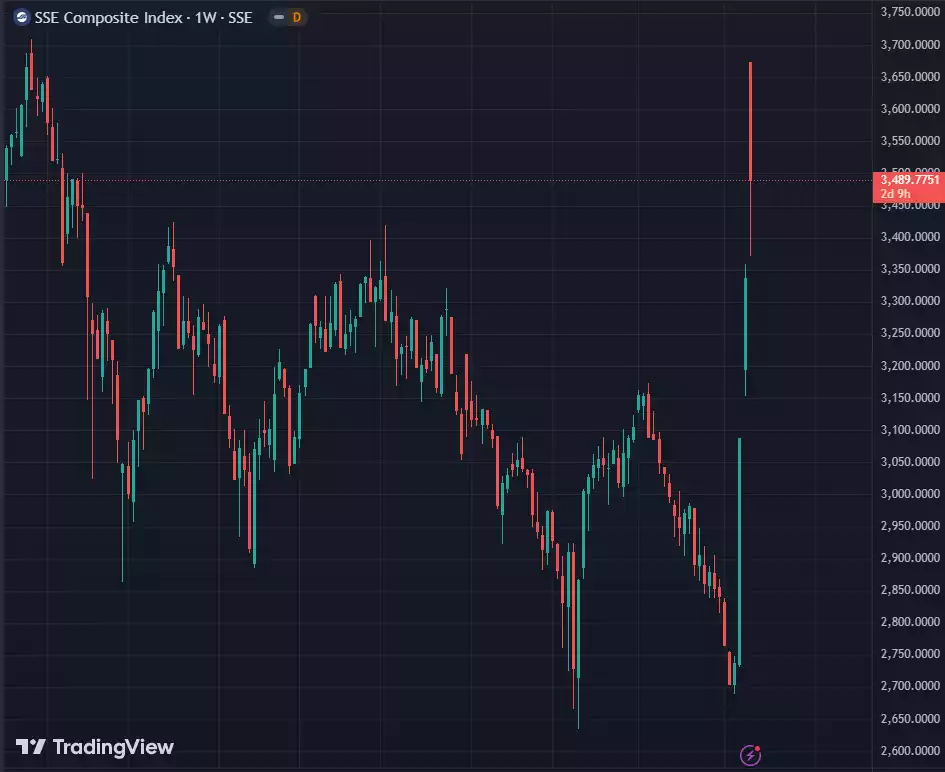China Needs (a Lot) More Stimulus?
News
|
Posted 09/10/2024
|
1207
We recently covered China’s aggressive range of stimulus measures, including giving money to listed companies so that they can buy back their own shares. Rather than criticism, economists have been commenting that it is not even close to being enough. Will China agree and further kickstart a massive global liquidity increase?
The Shanghai Composite has had a face-melting 36% rally in the last three and a half weeks:

It is not all good news, however. Surgically targeting a group of companies and supporting them with share buybacks, easy money, and media hype is not necessarily a lasting strategy or a sign that all of the economic ailments have been remedied. Notice the aggressive selloff on the current candle. Profit-taking has kicked in today, and the day’s gains have been almost immediately wiped out.
According to the recent BofA Global Fund Manager Survey, buying the Magnificent 7 stocks was the most crowded trade, but shorting Chinese equities was the second. What this could mean is that hedge fund managers identified an oversold Chinese stock market and capitalised on it. Just because hedge funds perform a short squeeze does not mean China is out of the weeds yet. This is typically more of a short-term profit-taking exercise.
China’s Main Challenge: Investor Fear
With property giants struggling in recent years and regional banks struggling with debt, it is easy to see why Chinese investors may be defensive. Ray Dalio seconded this view by saying that China fundamentally needs to restructure its bad debts. Dalio has typically been very supportive of China’s economy and success but seems to view the current stimulus as not enough to turn things around. His comments tie in with the overall cause of the dent in investor sentiment.
The one major positive of what China is currently doing is that it is probably the easiest way to improve sentiment. Printing more money and targeting an index could create more fear in short-sellers and improve sentiment in retail buyers (retail buyers typically vastly outweigh retail sellers). This could be a good first step, but if they want it to continue, they may need to inject a much larger amount of money. What this would mean for the world, of course, would be another run-up in global monetary inflation.